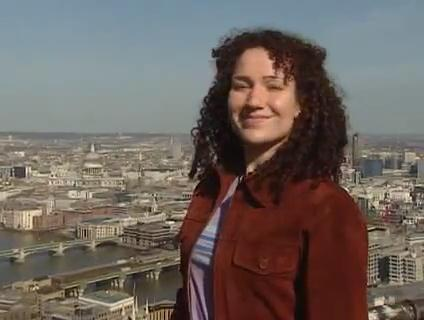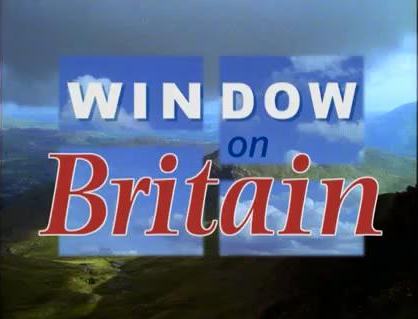- Учителю
- Звичаї та традиції англійців - конспект уроку (5 класс)
Звичаї та традиції англійців - конспект уроку (5 класс)
ТЕМА: "Звичаї та традиції англійців"
конспект відкритого уроку
(урок - подорож - змагання)
у V класі
за підручником О.Д.Карп'юк
підготувала та провела
вчитель англійської мови
Зоріна Л.В.
Підтема: Свята в англомовних країнах.
Мета: Увести новий лексичний матеріал за темою уроку. Тренувати учнів в аудіюванні під час перегляду відео за темою. Розвивати фонетичний слух, увагу, вміння зосереджуватися. Продовжувати формувати навички усного мовлення. Відпрацьовувати навики вживання Present Perfect. Виховувати в учнів повагу до традицій та народних звичаїв інших народів світу.
Обладнання: Підручник, робочий зошит, відеоматеріал, ПК,роздатковий матеріал.
ХІД УРОКУ
I. ПІДГОТОВКА ДО СПРИЙНЯТТЯ ІНШОМОВНОГО МОВЛЕННЯ
1. a) Привітання і повідомлення теми та мети уроку.
T: Good morning, dear boys and girls. I am glad to see you. (T →Cl)
Are you fine? (all together: 'Yes') Are you fine, Vlad? (- Yes, I am) How are you, Lera? (- Fine, thank you) And you, Artem? (I'm fine, too) (T →P1, P2, P3)
T: Great! Sit down, please. Let's start our lesson.
Today we'll speak about holidays in English - speaking countries and learn some new words. You'll also practise listening to stories about different festivals; we are going to practise ourselves in using Present Perfect, so we'll travel to other European countries today. The topic of our lesson is "Holidays".
b) Doing the puzzle
T: Well, friends, to begin with, have a look at the blackboard, please. Here is a puzzle for you to do. Name all the words in the pictures; take only the first letter of each word and you will read the topic of today's lesson.
For example, a hat - letter 'h' ….. (вивішується буква h на скотч)


![]()
![]()

![]()
![]() name
name
the colour

H
O
L
I
D
A
Y
S
P1, P2, P3, …..: orange - 'o', lemon - 'l', ice-cream - 'i', dress - 'd', apple - 'a', yellow - 'y', sweets - 's'.
T: So, what key word have we got? Right. … ('Holidays'). I am sure today you'll know much more interesting information about holidays because we are going to listen, read some information about celebrations in different countries of the world.
2. Уведення в іншомовну атмосферу.
Відпрацювання прислів'я "So many countries, so many customs", яке вчитель записує на дошці.
T: This proverb tells us that every country has its own traditions and customs. We
must respect historic traditions of different countries. Let us say the proverb together.
II. ОСНОВНА ЧАСТИНА УРОКУ
1. Тренування учнів в аудіюванні.
1) Pre-Listening Activity. Етап підготовки до аудіювання.
T: Now you are going to listen to Leonie Dodd  from "
from "  ".
".
After listening to the text twice you'll answer the questions and do some tasks. Before listening let's have a look at some new words. You have pieces of paper with the new words on your desks. Let's read them and try to guess what they mean.
a custom [´kʌstәm] - звичай
a tradition [trәdi∫(ә)n] - традиція
to appear [ ә´piә] - з'являтись
to arrive [ә´raiv] - приїздити
to discover [diskʌvә] - відкривати, дізнаватись
to exist [ig´zist] - існувати
to explore [ik´splᴐ:] - досліджувати, вивчати
to imagine [i´mᴂdᴣin] - уявляти
strange [´streindᴣ] - дивний
2) While-Listening Activity. Етап прослуховування тексту.
Учні двічі прослуховують текст в відеозапису, а другий раз із голосу вчителя.
Festivals in Britain
British people celebrate some festivals like Christmas and Easter with the rest of Europe. But some are just British. Here's a very British festival and a very noisy one!
- This is Guy Fawkes' Night in Britain. On the 5th of November every year British people remember Guy Fawkes - and his plot to blow up the King and the Houses of Parliament in 1605. That's Guy Fawkes and here he is under the Houses of Parliament. Some soldiers are arresting him and taking him away. Every November the 5th British people burn a model of Guy Fawkes. The models are called "guys". Children make them out of old clothes. There are a lot of fireworks, too.
- What's this? It's Pancake Day. Pancake Day is in February. In some towns there are Pancake Races. People throw pancakes in the air and race at the same time. And of course they eat lots of pancakes, too.
- Look at these beautiful red roses. And here's a card. Shhh! Let's have a look. "To my darling Julie with lots and lots of love from - and look - at all these kisses! Why? Because today is a very romantic day. It's St. Valentine's Day. On the 14th of February people send cards to someone they are in love with. But they don't sign the card. How do you know who it's from? You don't. You guess.
- Now it is October the 31st and it's Halloween. A festival of ghosts and witches. People often have parties and children dress up as witches.
- But the really important festivals in Britain are Easter and Christmas, especially Christmas. At Christmas people put up lots of decorations.
This is the Robinsons' Christmas tree. They keep their presents under it until Christmas Day. People often spend Christmas with their families. On Christmas Day they give their presents to their friends and family.
-
What's Mrs. Robinson got? - Oh, how lovely!
-
Lucky Mum! - Thank you, darling! Oh, great! Poor old Dad's got 4 pairs of socks!
In the morning a lot of families go to churches. They come back home and have a special Christmas dinner - roast turkey, stuffing, roast potatoes and Brussel sprouts. These are crackers. You pull at each end and inside there's a little present, a paper hat and a joke. Listen to this: "Where can you always find a cow?" "In a Moo - seum". Moo - seum - understand? Oh, sorry. They finish with the traditional Christmas pudding. Sometimes people put a silver coin in it. You don't eat it. It brings you good luck.
- After Christmas there's the last festival of the old year - or the 1st one of the new year - New Year's Eve. In Scotland they call it Hognamay. All round the country people have parties. And at midnight everyone sings a traditional song - " Auld Lang Syne". In Trafalgar Square in London there's always a really big party.
3) Post-Listening Activity. Етап перевірки розуміння змісту прослуханого.
T: Let us check how you understood the text. The 1st task is to answer my questions.
A.
-
How many holidays were mentioned in the video? (6 holidays)
-
What are they? (Guy Fawkes' Night, Pancake Day, St. Valentine's Day, Halloween, Christmas, New Year's Eve)
-
When do they celebrate all these holidays?
B. Some of you have the dates and some of you have the names of the holidays, so your task is to find the partner who has the right date or the right name to your festival. While answering use such sentence structure as:
e.g. Guy Fawkes' Night is celebrated on the 5th of November.
The New Year's Eve
the 31st of October
Guy Fawkes' Night
the 14th of February
Pancake Day
the 25th of December
Halloween
in February
Christmas
the 5th of November
St. Valentine's Day
the 31st of December
A N S W E R S:
(the 5th of Nov., , Pancake Day is celebrated on Shrove Tuesday (Shrove Tuesday - останній вівторок, in Spring at the beginning of Lent, Lent is a period of 40 days before Easter), the 14th of Feb., the 31st of October, the 25th of Dec., the 31st of December.)
The New Year's Eve
the 31st of December
Guy Fawkes' Night
the 5th of November
Pancake Day
in February
Halloween
the 31st of October
Christmas
the 25th of December
St. Valentine's Day
the 14th of February
3. Physical activities.
1. (Учні переглядають відео розминку і повторюють за ведучим, потім виконують рухи, які пропонує вчитель)
Stand up, wash your face, dress up, brush your teeth, go, run, sit down, stand up, fly, march, swim, sleep, wake up, jump, climb, run, breath in, breath out.
-
Тренування учнів у вживанні часових форм дієслова.
T: Let's review the chants with irregular verbs.
-
(Учні розповідають вірші, які підготували чи склали особисто , використовуючи дієслова у Present Perfect.)